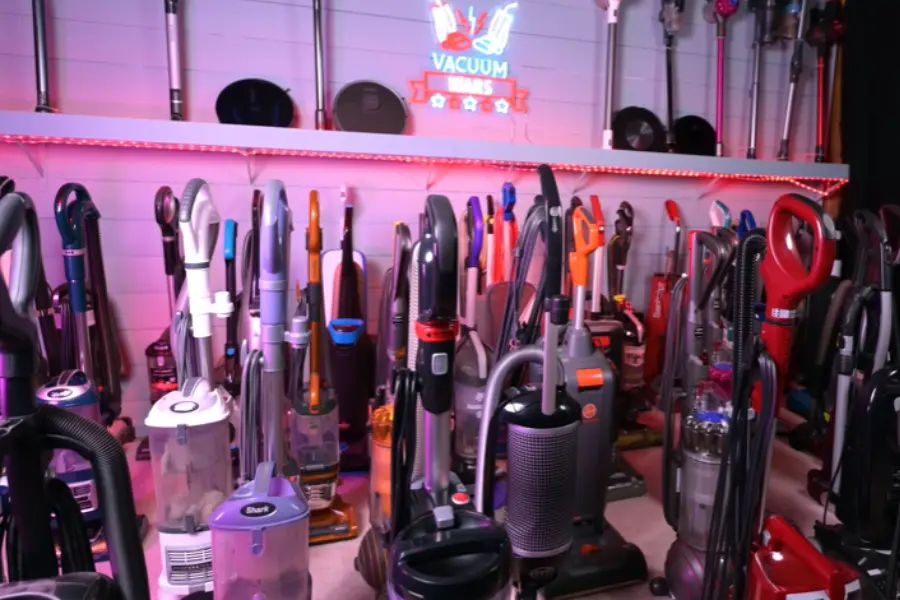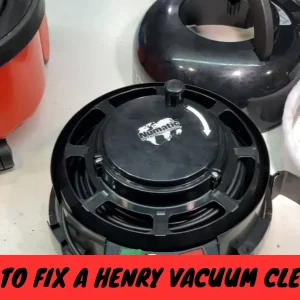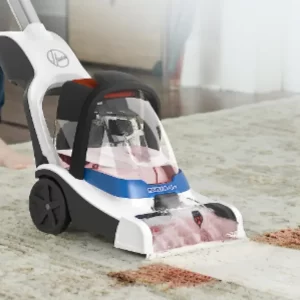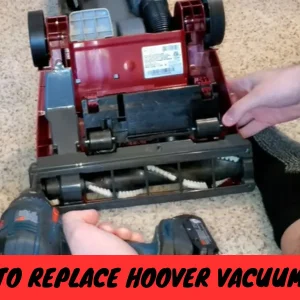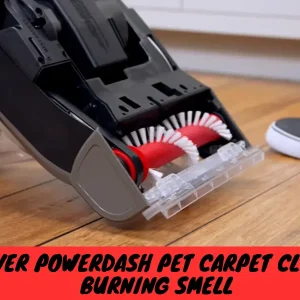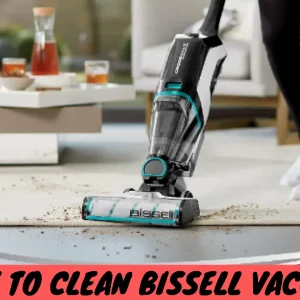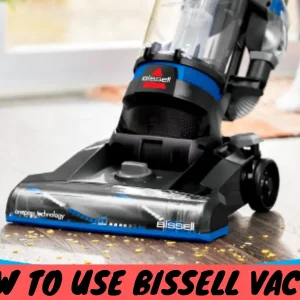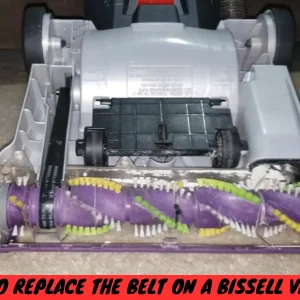“How to choose the right commercial vacuum is essential, and all kinds of workplaces need commercial vacuum cleaners to keep the air clean and free of dust and dirt. “
There are some similarities between commercial vacuums and the home vacuums we all know, but they are generally bigger and stronger.
A lot of them can do a lot of different things. There are many commercial vacuums, such as upright, tub, Canister vacuum, Wet & Dry, and backpack. Many other types can be used in businesses. It would help if you used the best machine that fits your needs.
What should you think about it? This article explains how to choose the right commercial vacuum cleaner.
How to choose the right commercial vacuum: Step-By-Step
1. Identify your cleaning needs: Consider the space size, flooring type, and frequency.
2. Consider your budget: Choose a vacuum that fits your budget while prioritizing quality to avoid long-term costs.
3. Check the vacuum features: Look for suction power, brush-roll controls, and adjustable height settings.
4. Choose the type of commercial vacuum: Evaluate different types such as upright, canister, backpack, handheld, wet/dry, and battery-powered vacuums based on your specific cleaning requirements.
5. Review reviews and ask for suggestions: Read reviews from other cleaning companies and seek advice from cleaning experts to make an informed decision.
Relevant Article
- Differences Between Commercial & Residential Vacuum Cleaners
- How To Clean & Maintain Commercial Vacuums
- Are commercial vacuums better?
What Makes a Vacuum Cleaner Commercial Grade?
Home vacuum cleaners work fine when they’re not used very often, but a commercial-grade vacuum is usually more lasting, more robust, and made to be used all the time.
A home vacuum would break down quickly when used for professional cleaning, but commercial vacuums are made to be used a lot and last longer.
Aside from that, most commercial units come with a commercial power cord, which helps your business follow safety rules.
What are commercial vacuums, and why do they matter?
Commercial vacuums are heavy-duty cleaning machines designed for operation in commercial spaces, such as hospitals, schools, and hotels.
Unlike regular household vacuums, these vacuums are made to withstand frequent and continuous use in high-traffic areas.
Vacuum cleaners are more convenient and more efficient in doing the work than traditional cleaning methods. Manual dusting and cleaning will take time, but vacuum cleaners will finish the job faster.
There are various commercial vacuums, each designed to fulfil specific cleaning needs. For example, upright vacuums are suitable for daily cleaning of large carpeted areas, while backpack vacuums are ideal for cleaning hard-to-reach areas such as stairs and tight corners.
Canister vacuums are best suited for cleaning hard floors, and wet/dry vacuums are excellent for cleaning up spills and messes.
How to choose the right commercial vacuum Is crucial for cleaners and cleaning companies to ensure the efficiency and effectiveness of their cleaning operations. A poorly chosen vacuum can save time, money, and energy, giving lacklustre cleaning results.
Therefore, investing in the right commercial vacuum is essential for your customers’ clean, hygienic, and safe environment. Then why are we waiting for? Let’s start with how to choose the right commercial vacuum cleaner.
How to choose the right commercial vacuum for your cleaning operation

1. Identify Your Cleaning Needs
You should first know what to clean to choose the right commercial vacuum cleaner. Consider the size of the space you need to clean, the type of flooring, and the cleaning frequency.
For instance, an upright vacuum would be the best choice if you have a large, carpeted area that needs daily cleaning. However, a backpack vacuum would be more suitable to clean tight corners and stairs.
2. Consider Your Budget
Different commercial vacuums have different prices, from cheap ones to expensive ones. Think about your money and pick a vacuum that fits that price.
You should keep quality for the price, though. A vacuum that wasn’t made well may cost you more in the long run because it may need fixes and upkeep.
We’ve also covered a post on a similar topic, which you can find here: Why Is My Shark Vacuum Won’t Turn On?
3. Check the Vacuum Features
Check a commercial cleaner’s features to ensure it meets your cleaning needs before you buy it. Look for things like pulling power, brush-roll controls, and height sets that you can change.
Also, check the vacuum’s filtering system to ensure it does an excellent job collecting allergens and dust.
Vacuum Cleaner Features
Hard Floor Option
If you have hard floors, be sure that your vacuum handles them well or that you buy the right accessories.
Upright vacuums are usually a good choice. Canister vacuums may need a special head attachment, for example.
Edge Cleaning
Extra brushes along the sides of the power head allow better cleaning on baseboards and walls. This is available on some upright models.
Height Adjustment
This accounts for carpets with thicker vs. shorter piles. Some adjust manually, others adjust automatically.
Roller Brush Type
A brush roll is this part that moves the carpet around to loosen and remove dirt. Suction-powered rollers clean better because they don’t move around as much as motor-powered rollers but can also spread dirt across hard floors.
You can fix this by picking a type to change the power levels or turn the brush roll on and off.
Easy On / Off
Having an on/off that’s easy to figure out and access is essential if your employees frequently use the vacuum.
Hose Diameter
Most commercial vacuums will list the diameter, which falls somewhere between 1 1/4″ and 2″. Narrower hoses are easier to use and store but handle less debris.
A narrower hose might be enough for light-duty cleaning, but a larger hose is a must for heavy-duty projects and renovations.
Cord
Will you work in huge rooms or old buildings with few power outlets and far between? If so, consider the power cord length when choosing a vacuum cleaner for your business. The standard 35′ or 40′ cord may be adequate in many applications, like hotel suites or business offices.
If you are cleaning large rooms with scarce outlets, consider a unit with a longer 50′ power cord or a cordless vacuum to reach a larger area without finding another power source.
Bag / Canister Capacity
Compare the capacities of the vacuums you are looking at to see which will hold more dirt before needing to be emptied.
Those with smaller capacities need to be opened more often, which can run into downtime and extra labour expenses. Plus, a smaller capacity would mean purchasing bags more often if you opt for a bagged model.
Weight
Generally, it’s hard to go wrong with a lightweight vacuum cleaner. This is especially important, though, if you’re planning to use your vacuum in multi-story buildings, for cleaning stairs, or as an accessory on a housekeeping cart.
The lighter weight will reduce strain on your staff, and a more lightweight vacuum is more straightforward to manoeuvre, lift, and store.
Noise Level
If you are cleaning areas where people are working or relaxing, like office spaces or hotels, you may want an especially quiet vacuum cleaner.
If this is a concern, look for units with a noise level around or below 55 dB, which is the same range as most normal conversations, or choose one with power settings that allow for quieter operation when you need it.
Vacuum Cleaner Bags and Replacement Parts
The most replaced components of any vacuum cleaner will be the bags and filters used to trap dust.
When bags get full, they significantly reduce your vacuum’s ability to pick up and contain debris, so it’s essential to ensure that you always have fresh bags and filters on hand to avoid downtime.
After bags and filters, belts are the next component that must often be replaced. As with belts on any other equipment, vacuum cleaner belts develop wear and tear and can break at the most inconvenient times.
To ensure you aren’t left with a broken belt in the middle of a job, you can take proactive steps by replacing your vacuum cleaner belts at regular intervals or keeping an extra one with the machine when it is in use.
Looking for more such informational blog topics? Read our recent blog post on
Benefits Of Industrial Vacuum Cleaner
4. Choose the Type of Commercial Vacuum
As mentioned, there are various commercial vacuums, each with specific roles. Here are some of the most common types of commercial vacuums and their recommended uses:
Types of Vacuum Cleaners
Each vacuum cleaner has strengths make it best-suited for specific tasks over other vacuum types. Each type is explained in greater detail below.
Upright Vacuums – general purpose cleaning.
Canister Vacuums – under furniture, cleaning stairs.
Backpack Vacuums – long periods of cleaning.
Handheld Vacuums – stairs, moulding, drapes, upholstery, spot-cleaning.
Wet / Dry Vacuums – construction sites, professional cleaning services, wet spills.
Upright Vacuum
With a powered cleaning head, a long power cord, and a bag or container on the handle, upright commercial vacuum cleaners are great for general-purpose cleaning in hotel rooms and offices. These and their manual counterparts, floor sweepers, also make a great restaurant vacuum.
The self-contained design is ideal for applications where your cleaning crew will go from one area to another since they only need to roll the vacuum cleaner to the next room and plug it in.
With this style, wrangling a separate canister or unwieldy hose is unnecessary. Plus, many upright vacuum cleaners will fit on housekeeping carts to easily be transported with the rest of your hotel cleaning supplies.
How to choose the right commercial vacuum cleaner? Now come to the point. You can use an upright vacuum cleaner if you have ample space, like a hotel room or office. I believe it will be beneficial for your large space.
Canister Vacuum
A canister vacuum has a cleaning head attached to the dirtbag and a motor with a rigid wand and a long, flexible hose.
The vacuum head is much lighter and more manoeuvrable than an upright vacuum cleaner since you don’t need to move the canister with every pass. Also, canister vacuums, in general, tend to be quieter than other styles.
Since they have smaller and more manoeuvrable cleaning heads, canister vacuums are perfect for cleaning under furniture and are easier to handle when vacuuming staircases.
Though storing the hose and wand along with the canister may take up more space, the convenience of using a canister vacuum may outweigh storage concerns when cleaning under chairs and tables in a restaurant setting.
How to choose the right commercial vacuum cleaner is now explained. If you have hotels and want to clean your stairs, table or chair without loud noise, you can go for a canister vacuum cleaner.
Backpack Vacuum
Backpack vacuum cleaners make it easy for workers to clean for extended periods because they are small and light. For worker safety, most models come with comfortable pads and back supports, and they’re also fair enough that people of all heights can use them.
Employees can use their hands to move furniture out of the way or handle the stick and power cord because this cleaner is worn like a backpack.
Some backpack vacuum cleaners also have a feature that allows users to switch the unit from a vacuum cleaner to a blower as needed.
Offering convenience, manoeuvrability, versatility, and the added benefit of being lightweight, backpack vacuums are great for commercial cleaning applications.
How to choose the right commercial vacuum than a backpack vacuum is here. A backpack vacuum is best used for your employees. For worker safety, you can use a backpack vacuum cleaner with comfortable pads and back supports.
Handheld Vacuum
If you need a small vacuum to clean stairs, moulding, drapes, or upholstery in restaurants, hotels, or offices, a handheld portable vacuum cleaner is a great choice! Small and lightweight, these vacuums are easy to carry from one task to the next.
Though not a good option for cleaning large areas, portable vacuums also work well for quick cleanups and spot cleaning between regular vacuuming. Instead of bringing a full-size vacuum out of storage, it’s easy to store these units conveniently and grab them immediately.
So, If you have small spaces and want to carry your vacuum cleaner, you can choose a handheld vacuum. A handheld vacuum is best for quick cleaning. Choosing the right commercial vacuum here is one.
Wet / Dry Vacuum
These are some of the best commercial vacuum cleaners on the market because they can clean up any mess, from dust and debris on building sites to liquids from a flood or an accident.
Cleaning companies must have wet/dry vacs, and they’re also great for cleaning up after a natural disaster or makeover when there’s been a storm or a water pipe breaks; wet/dry vacuum cleaners can save a lot of time by getting rid of the need to mop and bucket.
Many wet/dry vacuums tend to be louder than other varieties, so consider the decibel level of each unit before purchasing and be prepared with ear protection for your employees.
Another specialized consideration for wet/dry vacuums is the method of emptying. Look for a unit that comes with a drain valve or drain hose for easy emptying when you are cleaning up wet messes.
Don’t forget cleaning companies must have a wet/dry vacuum cleaner. How do you choose the right commercial vacuum cleaner? Then wet/dry vacuum is here. Before buying, keep in mind that a wet/dry vacuum is louder, but It works very fast, so you save time.
Battery-Powered Vacuum Cleaners
For cleaning during the day, you need a specific type of vacuum. There’s no need for a portable vacuum when building service workers wash around renters during the workday. The same applies to stores and hospitals when cleaning around customers and patients.
Since battery-powered vacuums are light and don’t need to be plugged in, there is no chance of tripping, so you can take them anywhere! Since there is no wire, the vacuum won’t get tangled up on furniture or feet, which makes it safer for people to use.
Okay then, it is suitable for your hospitals’ and hotels’ cleaning because if there are many customers, there is no problem. You don’t need to plug in; you can carry this vacuum anywhere. If you choose the right commercial vacuum cleaner, you can go for it.
Read our comprehensive guide on Difference between upright and portable carpet cleaning solutions.
5. Check out reviews and ask for suggestions.
Finally, to make an informed choice read reviews and ask other cleaning experts for their advice.
For help finding the best commercial vacuums for your needs, read reviews from other cleaning companies online and talk to people working there.
“Reader Engagement”
We appreciate your feedback and questions regarding the commercial vacuum. If you have any thoughts or queries, please share them in the comments section below. If you found this manual useful, consider sharing it with your friends and family so they can effectively care for their commercial vacuums. Happy cleaning!
Conclusion
Choosing the right commercial vacuum cleaner is crucial for the efficiency and effectiveness of your cleaning operation. By considering factors such as cleaning needs, budget, vacuum features, and type, you can make an informed decision that meets your specific requirements. Additionally, consulting reviews and seeking advice from cleaning experts can deliver valuable insights to help you select the most suitable commercial vacuum cleaner for your business.
FAQs
Consider factors such as the size of the space, type of flooring, cleaning frequency, budget, vacuum features, and specific cleaning requirements.
An upright vacuum cleaner is typically the best choice for large, carpeted areas that require daily cleaning due to their powerful suction and efficient operation.
A backpack vacuum cleaner is more suitable for cleaning tight corners and stairs as it offers greater manoeuvrability and ease of use in confined spaces.
Noise levels can be important, especially if you are cleaning in areas where people are working or relaxing. Look for units with noise levels around or below 55 dB for quieter operation.
